Reflections on the InfraNorth Workshop “The Global Economics and Geopolitics of Arctic Transport Infrastructures”
Philipp Budka and Olga Povoroznyuk
On September 23 and 24, 2021, the InfraNorth project organized the workshop “The Global Economics and Geopolitics of Arctic Transport Infrastructures” at the Department of Social and Cultural Anthropology of the University of Vienna.
The first day started with an introduction by Peter Schweitzer, Olga Povoroznyuk, and Timothy Heleniak to InfraNorth, its different project components, and its overall research question and objectives.
InfraNorth aims to explore the role of Arctic transport infrastructures for the sustainability and the well-being of collectives and individuals alike by applying a relational affordance perspective that focuses on how local arctic residents experience and engage with these infrastructure
The first invited speaker Klaus Dodds (Royal Holloway University of London) then “went elemental” in his talk on the infrastructural turn in geography and geopolitics.
As he argued, this turn has also put “the everyday” into the focus by strengthening scientific approaches that look beyond the technical or the geographical as separate dimensions. In the analyses of its promises, imaginaries, consequences, temporalities, and failings, infrastructure is increasingly conceptualized as an assemblage of the environmental, the technical, and the geopolitical. This approach calls for the inclusion of local perspectives on infrastructures, such as geographically and culturally distinct “traditions” of thinking about infrastructure. Such local perspectives can, for example, be helpful for understanding the Arctic sea ice or permafrost as “critical elemental infrastructures”. The concept of infrastructure can, thus, link the changing natural environment, the displacement of people and the resilience of communities, to the role of the infrastructural in everyday life and the accumulation of local environmental knowledge.
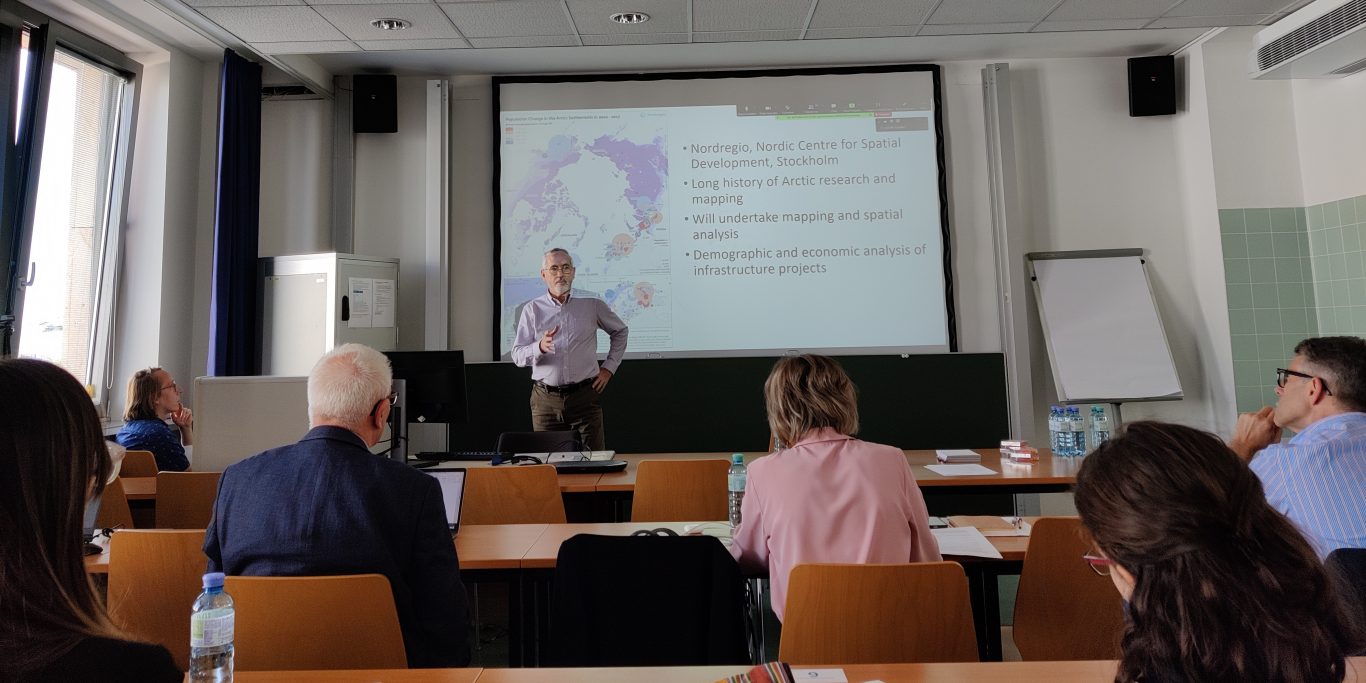
In the workshop’s third presentation, Marlene Laruelle (George Washington University) discussed the climatic, economic, and geopolitical challenges for transport infrastructures in the Russian Arctic.
Marlene showed that transport infrastructures in many regional and local settings are getting more expensive, particularly because of permafrost thaw. National inland transport infrastructures are being reconstructed or expanded as international sea traffic along the Northern Sea Route increases. In addition, the Russian case demonstrates that military presence has been a driver of recent infrastructural development in the Arctic and that some of the military infrastructures can be used for civilian purposes, such as search and rescue operations. Among the current geopolitical and economic challenges of the Russian Arctic are the relationship with China, the Western sanctions, and the difficulties of attracting private investments in transport infrastructures that do not serve directly the major resource extraction projects. The Russian state prioritizes issues connected to securitization and resource exploitation. At the same time, it overlooks socioeconomic problems. This leads, according to Marlene, to population decline and increased isolation of the local communities.
In her talk on Chinese infrastructures in the Arctic, Mia Bennett (University of Washington) emphasized that China has a considerable strategic interest in Arctic regions.
Projects such as the “Polar Silk Road” and the “Ice Silk Road” demonstrate that very clearly. China is particularly interested in exploring and monitoring Arctic developments via satellite-based geographical positioning systems (BeiDou Navigation Satellite System) and related broadband connectivity. Mia stressed that in times of increasing digitalization and connectivity, “virtual and invisible” infrastructures, such as satellite navigation and submarine cable systems, should not be forgotten. In the context of growing data nationalism and securitization, she asked whether Chinese digital infrastructure, used to collect and store information about the Arctic, could facilitate governance and address the needs of local communities in the Arctic.
In the next talk, Nadezhda Zamyatina (Lomonosov Moscow State University) took us back to the Russian Arctic.
Conceptualizing the Arctic as “off-road territory”, she discussed the consequences of living in Arctic cities and more remote areas disconnected from Russia’s mainland. Low transport accessibility of coastal communities leads to higher consumer prices and costs of living, limited social services and, as a result, to outmigration and the abandonment of settlements. On the other hand, such remoteness can become a source of creativity and technological innovations, such as the redesign and reuse of abandoned infrastructures and materials, and the spread of telemedicine.
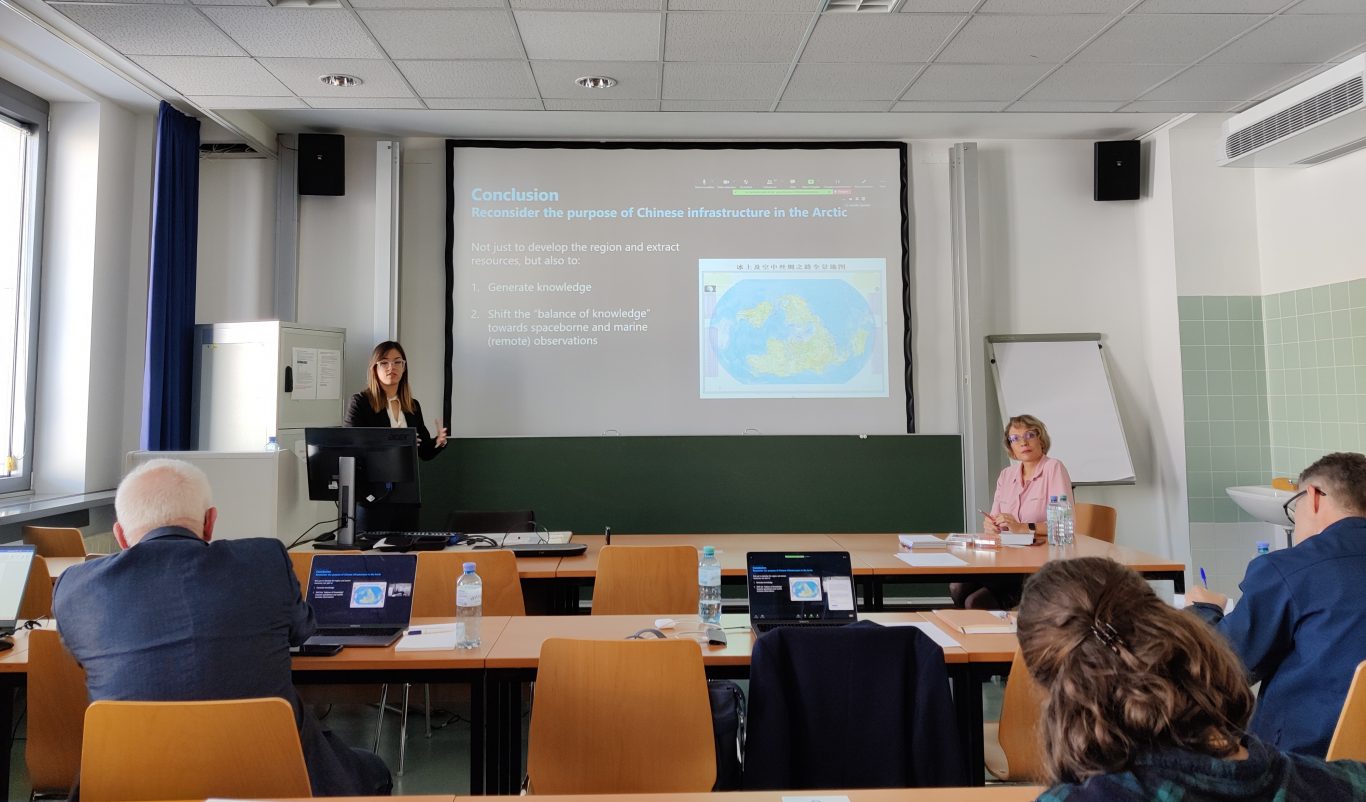
In the workshop’s last scientific presentation, Lawson Brigham (University of Alaska Fairbanks) emphasized the complexities of Arctic transport infrastructures, such as marine shipping.
He reminded us that marine transportation has played a key role in globalization of the Arctic. This mode of transportation depends very much on continuously retreating sea ice and its seasonal conditions, as well as on national legal regulations and priorities. As the example of the Bering Strait illustrates, there are important national, regional, and local differences in shipping. While on the Russian side commercial shipping predominates, on the US side of the Strait shipping serves primarily for connecting remote communities. The Arctic Marine Shipping Assessment (AMSA) released in 2009, identifies the major themes and drivers of navigation and proposes recommendations for sustainable shipping in the Arctic. Among the most hotly debated topics concerning Arctic shipping are the development of green infrastructure and strategies of response to and liquidation of oil spills and other environmental emergencies, the regulation of national disputes over the Arctic Ocean, as well as participation of local communities in governance structures.
The first workshop day ended with a presentation by photographer Gregor Sailer on his recent project about Arctic industrial and military infrastructures called the “Polar Silk Road”.
On the second day, InfraNorth project team members and affiliated researchers discussed their research approaches and fieldwork plans for each of InfraNorth’s three study regions – the Russian Arctic, the North American Arctic, and the European Arctic – with the invited speakers.
In an additional session future scenarios of Arctic transport infrastructures were discussed with InfraNorth’s partners of the International Institute for Applied Systems Analysis.
Results of this workshop are currently prepared by the organizers and the invited speakers for publication as a special issue of Polar Geography.
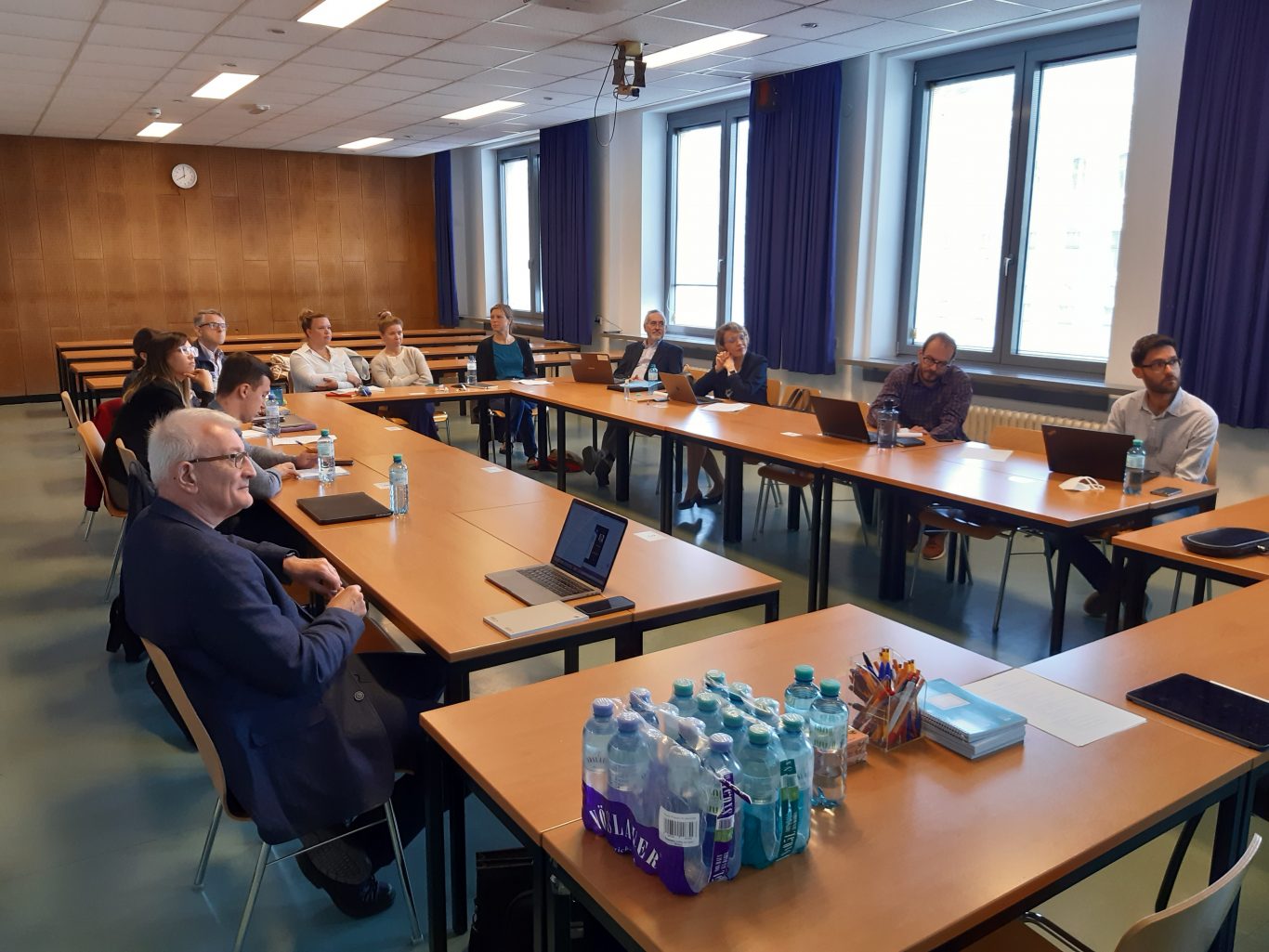
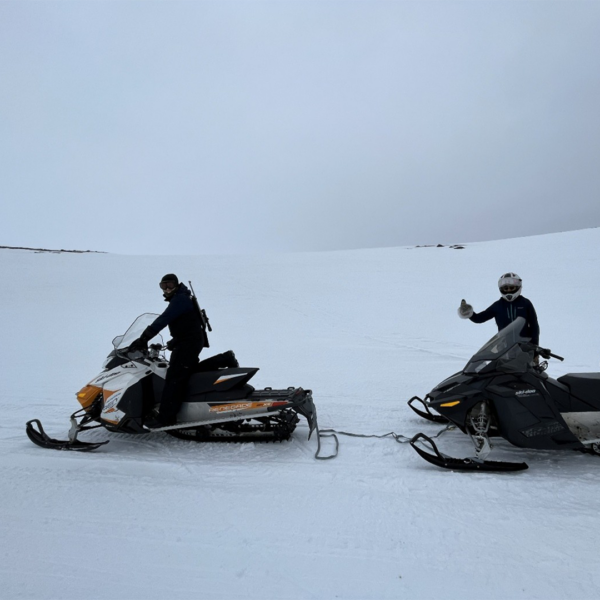

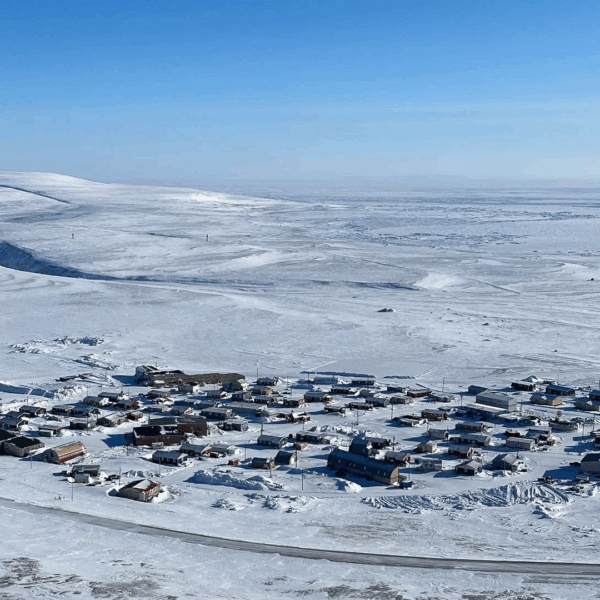
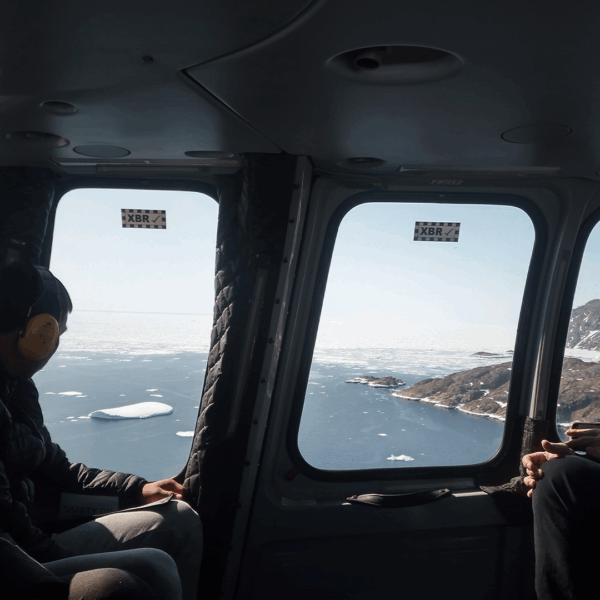
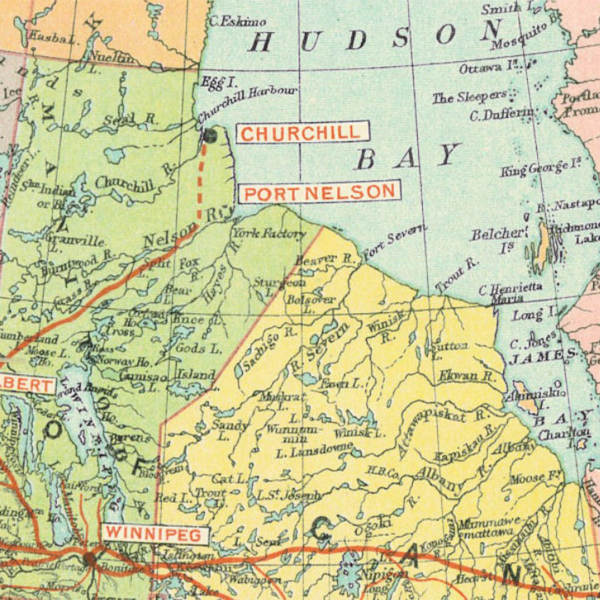

Please login to post a comment...